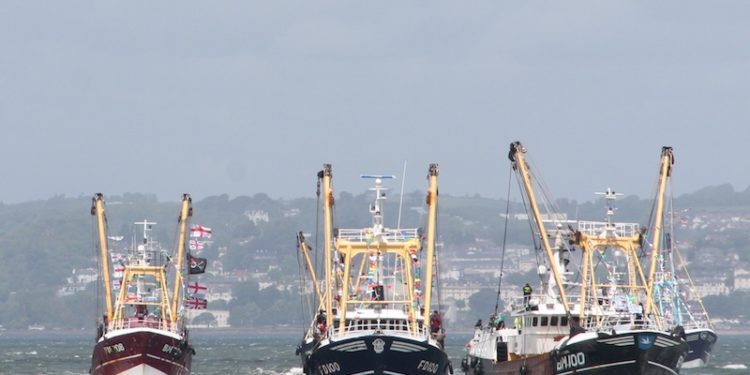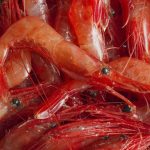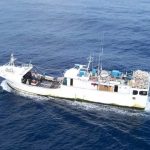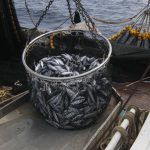UK fishing organisations are adamant that the country’s fishing industry should not be tied into a transitional deal as the UK leaves the European Union. The federations have been unanimous that fishing is a special case that demands special terms that would release it from the CFP at the earliest opportunity.
The fishing organisations are all of the opinion that being bound by a transitional deal would be a disastrous situation for UK fishing. The NFFO has spelled out a list of ten reasons why the UK fishing industry should be exempted.
‘Logically, fisheries jurisdiction, access rights and quota shares should be dealt separately with trade arrangements when the UK’s legal status on fisheries changes on 29th March 2019,’ NFFO chief executive Barrie Deas explained.
‘Norway for example, maintains access to the EU single market under specific agreed arrangements but it manages the fisheries within its own EEZ and enters into annual agreements on the management shared stocks and quota exchanges as an independent coastal state.’
He warned that if the UK accepts that fishing should be part of a 21 month transitional period on the terms specified by the EU – status quo on access and quota shares –it will be because it has, as in 1973, decided that fishing is expendable and that other, trade issues take priority.
The NFFO’s position is that once the principle that the status quo on quota shares and access has been conceded for a transitional deal, it is patently obvious that the EU will use the same tactics and leverage when the UK seeks to negotiate a long-term trade deal with the EU.
‘Fishing will again be a sacrificed pawn, irrespective of its legal status as an independent coastal state,’ he warned.
‘It is clear that at the point that the UK leaves the EU, UK ministers and UK officials will no longer be party to decisions within any of the European institutions, including those which set quotas and make other rules on EU fisheries. It is an extreme understatement to say that it would be completely prejudicial to the interests of the UK fishing industry to tie us into fisheries management decisions (as part of the aquis communautaire) in which the UK are mere rule-takers.’
He points out that after the UK leaves the EU, the EU’s EEZ will amount to less than 20% of the North Sea and around 50% of Western Waters.
‘It stretches credibility to understand, in those circumstances, why the UK would subject itself to intrusive control or constraints on its ability to negotiate freely as an independent coastal state, either as part of a transitional period, or a longer-term trade deal,’ he added.
‘As an independent coastal state the UK would be expected to take its seat in international fisheries negotiations, including those with Norway, other coastal states and the EU. Even the European Commission recognises that separate, bespoke arrangements will be required to include the EU in the decisions when setting TACs in the annual year end negotiations,’ Barrie Deas said.
‘There is no legal, or fisheries management reason, why the UK should accept any precondition or artificial constraint on its right to negotiate the best deal that it can, including on access arrangements and quota shares.’
The NFFO sets out that the clear alternative would be that from autumn 2019, the UK will negotiate with those countries with which it shares stocks, on an annual basis, as an independent coastal state, without any preconditions or artificial constraints.
‘We understand that the EU27 have just outlined their shopping list, insofar as a transitional period is concerned and that the negotiations have not yet begun,’ he said.
‘But it should be understood what they are asking for: despite the UK’s new status as an independent coastal state, it is the continuation of an asymmetrical and exploitative arrangement with the UK, which vast swathes of the UK population, as well as the fishing industry, consider to be grossly unfair and a distortion of a relationship which should bring reciprocal benefits.’
‘A transitional arrangement on trade arrangements is important to give time to businesses in the UK, and in the EU 27, time to adapt to the new realities that will emerge after the UK leaves the EU,’ he stated.
‘On fisheries management, however, it is possible to move smoothly and seamlessly into a pattern of annual (bilateral or trilateral) international agreements with the countries with which we share stocks, to replace the CFP’s decision-making processes. That is what should happen and the transitional arrangements should apply only to the trade regime.’
‘There is only one reason why the EU would resist that pragmatic solution and that is that the EU benefits from the current asymmetrical arrangements and seeks to find ways to keep them.’
He said that the tenth point underscoring the NFFO’s position is that fisheries jurisdiction and negotiations were artificially and cynically bound into the CFP in 1973 to the UK’s systematic and lasting disadvantage.
‘Not unnaturally, the EU 27 would like to continue that exploitative relationship because it works heavily to their advantage,’ Barrie Deas said.
‘There is a once-in-a-generation opportunity to take a different and better path and there is a heavy responsibility on out government not to drop the ball at this crucial point in history.’









